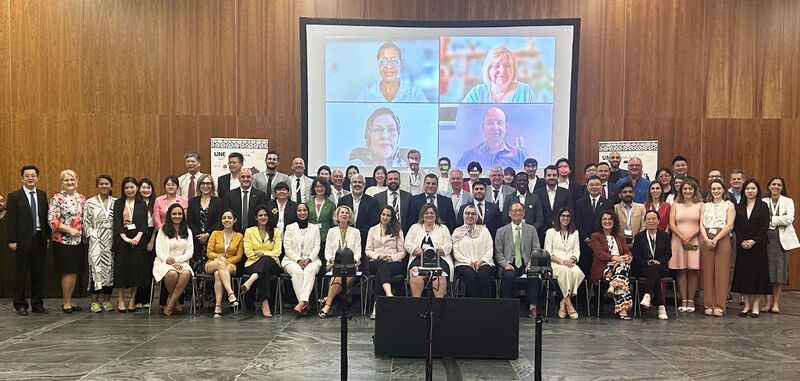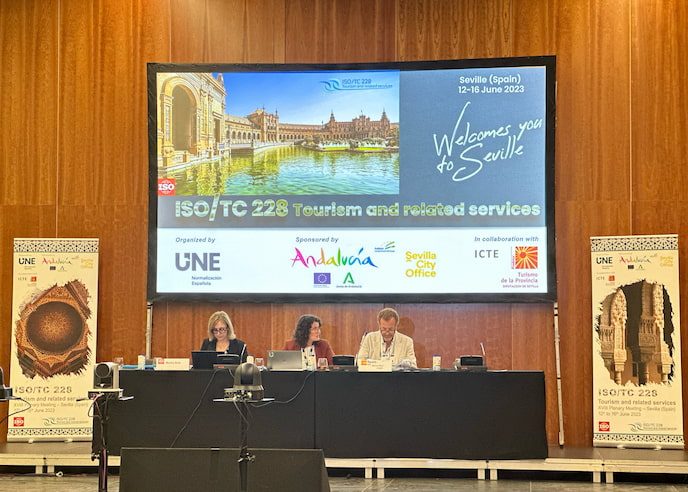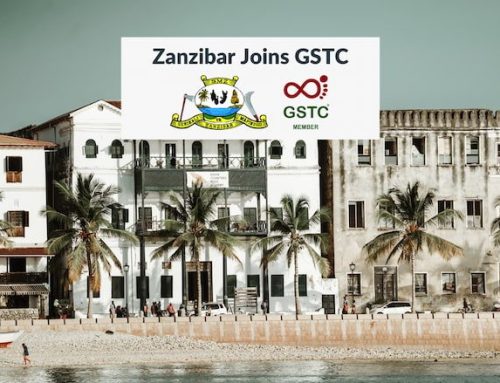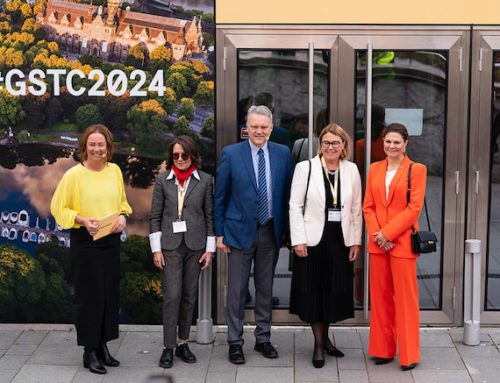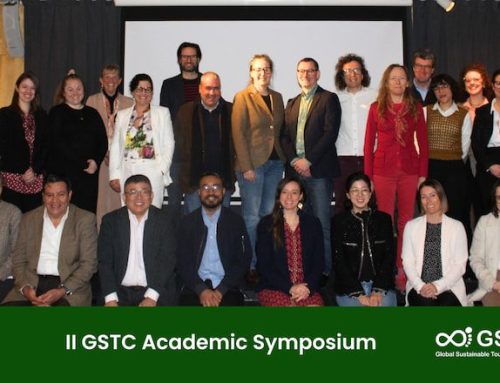GSTC attended the international meeting of the ISO Tourism Committee that took place from June 12 to 16 in Seville, more than 80 experts from 30 countries participated in this meeting, which was organized by the Spanish Association for Standardization, UNE.
It was the first face-to-face meeting after the pandemic of the ISO/TC 228 International Standardization Technical Committee for Tourism and related services in Seville, Andalusia.
This international meeting was in collaboration with the Department of Tourism, Culture, and Sports of the Junta de Andalucía and the Seville City Office. The Institute for Spanish Tourism Quality (ICTE) and the Seville Provincial Council also collaborate through Prodetur-Turismo de la Provincia.
UNE secretaries the international ISO/TC 228 Committee, chaired by Spanish representative Manuel Otero, as proposed by ICTE. ICTE is the body that has promoted, coordinated and worked on the development of the international standards approved in this Committee.
Among the 80 international experts participating in the ISO meeting, representatives from ministries of tourism, sectoral associations, international organizations, standardization bodies, tourism companies, and universities, including the Global Sustainable Tourism Council (GSTC) organization in liaison.
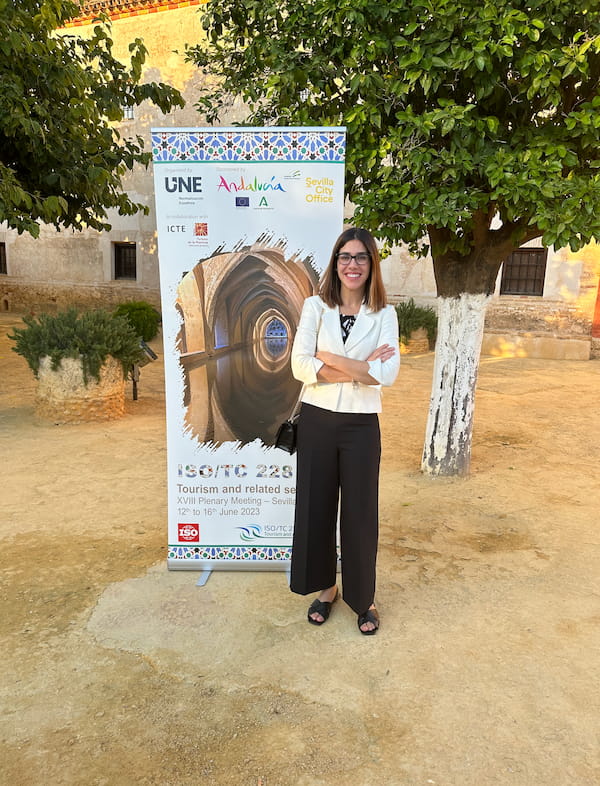
“It was a distinct pleasure to have the opportunity to engage with and learn from experts from different countries. Each brought a unique perspective that enriched the discussions and highlighted the diverse approaches to tourism quality standards across the globe. This synergy of thoughts and ideas reaffirms the importance of international cooperation and mutual understanding in our quest for a more sustainable tourism industry and overall future.”
For five days, Seville, Andalusia, and Spain were the epicenter of international tourism standards discussions. UNE, as the secretary of the committee, coordinated the 12 working groups of the ISO Committee addressing topics such as accommodation, MICE, sustainable tourism, and tourist information services, among others. Each group was led by a different country, such as Brazil, China, or Austria; demonstrating that tourism is a transnational phenomenon that requires international consensus to promote good practices that enhance the customer experience.
About UNE
The Spanish Association for Standardization, UNE, is a global organization whose purpose is to develop technical norms or voluntary standards that contribute to the shared progress of society and the creation of a safer, more sustainable, and competitive world. The standards capture the market consensus on best practices in key aspects for the competitiveness of organizations and for the interests of all of society, being the result of dialogue and joint collaboration of the economic sectors and public administrations.
With the participation of more than 13,000 professionals in its working groups, UNE is the Spanish representative in international standardization bodies (ISO and IEC), European (CEN-CENELEC and ETSI), and American (COPANT).
About ICTE (Instituto para la Calidad Turistica de España)
The Institute for Spanish Tourist Quality is a Spanish, private, independent, and non-profit organization, whose Board of Directors participate in the Secretary of State for Tourism, the autonomous communities, the city councils, and the main associations and federations of tourist companies.
It is an international benchmark as a Certification entity for quality, safety, and sustainability systems specifically created for tourist companies. It owns the Q brands for Quality and S for Sustainable Tourism, as well as the Safe Tourism Certified seal for safe tourism, which are obtained after a rigorous external audit.
About GSTC
The Global Sustainable Tourism Council® (GSTC®) establishes and manages global sustainable standards, known as the GSTC Criteria. There are two sets: Destination Criteria for public policy-makers and destination managers, and Industry Criteria for hotels and tour operators. These are the guiding principles and minimum requirements that any tourism business or destination should aspire to reach in order to protect and sustain the world’s natural and cultural resources while ensuring tourism meets its potential as a tool for conservation and poverty alleviation.
The GSTC Criteria form the foundation for GSTC’s assurance role for Certification Bodies that certify hotels/accommodations, tour operators, and destinations as having sustainable policies and practices in place. GSTC does not directly certify any products or services, but provides accreditation to those that do. The GSTC is an independent and neutral USA-registered 501(c)3 non-profit organization that represents a diverse and global membership, including national and provincial governments, leading travel companies, hotels, tour operators, NGOs, individuals and communities – all striving to achieve best practices in sustainable tourism.
Information for media and the press: www.gstcouncil.org/about/for-the-press/


